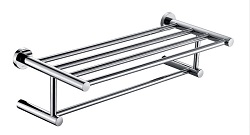The global market today is no longer just about products or simple competition. It's shaped by the combined influence of the Internet and modern communication tools like Weibo and WeChat. This new era of competition is dominated by English, follows an American model, and integrates German manufacturing with the Chinese market. What challenges does this evolving landscape pose to China's door and window industry?
Competition in the door and window sector is fundamentally a visual one. It starts with what the eye sees, then moves into emotional connection. The most crucial aspect is visual power—how attractive and compelling a product looks. Next comes style competition. Are the designs German, Swiss, American, Japanese, or inspired by traditional Chinese styles? Different styles reflect different competitive strengths. Then there’s design, materials, technology, talent, and finally, brand. At the core of brand competition lie elements like quality, aesthetics, environmental friendliness, innovation, taste, and cultural value.
In the door and window market, some products are sold at high prices while others are very affordable. What really defines their value?
The way markets compete is constantly changing, and this presents significant challenges for door companies. Let’s look at what types of businesses or dealers want to sell. Honest companies and dealers focus on selling the right products to those who need them. That’s the basic approach. Smart companies, however, sell brands and charge more for products that appeal to people’s desires. Others go even further by selling status or prestige. The most advanced companies don’t just sell products—they sell ideas. The most expensive thing isn't always the physical product; it's the vision and the concept behind it. Therefore, the future of the door and window industry must move toward transformation, upgrading, and diversification.
Consumers born after 1980 and 1990 have distinct preferences: they seek personalization, uniqueness, fashion, and timelessness. These traits carry different meanings. While classics remain timeless, trends change rapidly and are influenced by current culture.
Looking at the six key principles that German door and window products follow: 1. Focus – each type of door (wooden, aluminum, plastic) has its own niche and operates independently. Many companies have been around for decades. 2. Standards – strict adherence to quality and consistency. 3. Precision – attention to detail. 4. Perfection – striving for excellence. 5. Order – efficient production and management. 6. Thickness – durability and strength.
Currently, China lacks a unified industry standard for doors and windows in real estate projects. This is a major gap. However, industry associations and government bodies are working to develop these standards. In developed countries, good door and window products are judged by five key features: wind resistance, air tightness, water penetration, thermal insulation, and soundproofing.
In the competitive Chinese market, I believe the first step is to build a sustainable profit model. While large-scale engineering projects may generate volume, they often struggle to build strong brand recognition. Ultimately, success depends on retail presence, market reach, and not just relationships.
Looking ahead, as the door and window industry matures, we can expect a market structure that includes high-end experiences, mid-range displays, low-end options, and word-of-mouth promotion. Brand influence will be driven through stores, communities, and online platforms.
Company leaders must think ten years ahead. Those stuck in the past will be left behind. Those focused only on the present are outdated. Only those who plan for the future can truly succeed. As a business leader, you must act like a screenwriter, setting the direction for your company. Who do you want to serve in the next decade?
Corporate planning is like writing a script. Many successful companies in the door and window industry have risen and fallen quickly. Why? Because they lacked long-term vision. To thrive, companies must define a clear direction, set goals, develop strategies, invest in training, and identify effective models.
Running a door and window business isn't just about selling products—it's about building a brand, cultivating a culture, and leading with purpose. A successful business owner needs a global perspective, local ambition, and the craftsmanship spirit to grow stronger and bigger. China has many managers and bosses, but what we lack are employees who dedicate their entire lives to one profession.


towel rack,bathroom hardware,stylish towel holder
ONLEE HARDWARE CO.,LTD , https://www.onleehardware.com